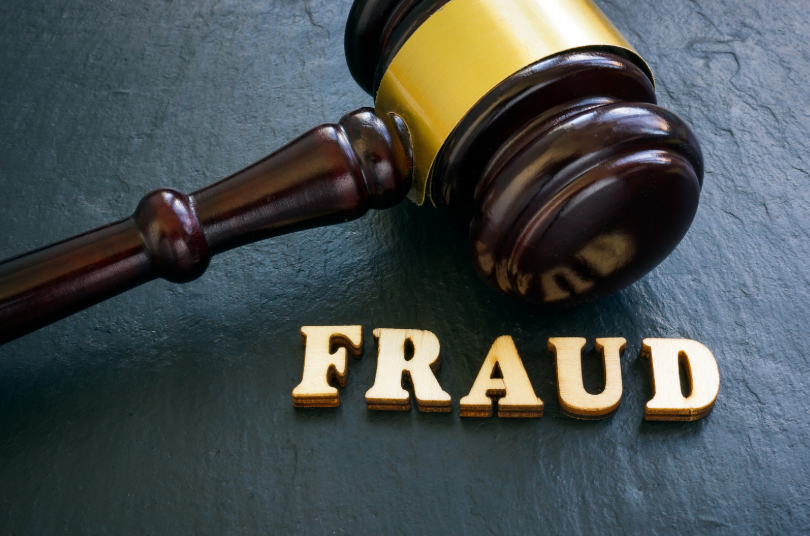
Fraud is a serious legal issue in Texas, affecting businesses, individuals, and institutions. Whether it involves financial misrepresentation, false promises, or concealed facts, fraud disrupts trust and can lead to significant legal consequences. If you’re navigating a fraud claim in Texas—whether as a plaintiff or a defendant—it’s essential to understand the elements of fraud and how Texas law defines and addresses these cases.
This guide explains the key components of fraud, outlines examples of common fraud cases, and explores the remedies available under Texas law.
What is Fraud?
Fraud occurs when a person or entity intentionally deceives another to secure an unfair or unlawful gain. In Texas, fraud is addressed in both civil and criminal contexts. Civil fraud cases typically seek damages, while criminal fraud cases can lead to fines, imprisonment, or both.
Fraud generally involves an intentional misrepresentation of material facts, leading to harm or injury to the victim. It is not limited to financial dealings—it can also occur in real estate transactions, contractual agreements, and employment relationships.
Elements of Fraud in Texas
To prove fraud in Texas, the plaintiff must establish certain elements. These elements form the foundation of a fraud claim and are critical to determining whether a misrepresentation or omission constitutes fraud.
1. Misrepresentation of a Material Fact
- The defendant must have made a false statement or misrepresented a fact.
- The fact must be “material,” meaning it significantly influenced the plaintiff’s decision-making.
- Example: A seller falsely claims that a car has never been in an accident, which convinces the buyer to purchase it.
2. Knowledge of Falsity or Reckless Disregard for the Truth
- The defendant must know the statement is false or act with reckless disregard for its truth.
- This element distinguishes fraud from innocent mistakes or errors.
- Example: A contractor knowingly uses substandard materials but assures the client they meet industry standards.
3. Intent to Deceive
- The defendant must intend for the plaintiff to rely on the false statement.
- This intention can be inferred from the defendant’s actions and the surrounding circumstances.
- Example: A business owner inflates revenue figures to attract investors, intending to secure their money.
4. Justifiable Reliance by the Plaintiff
- The plaintiff must reasonably rely on the misrepresentation when making decisions.
- Reliance is not justified if the plaintiff ignores obvious red flags or fails to perform due diligence.
- Example: A buyer trusts a home inspector’s report but later discovers the inspector intentionally overlooked structural damage.
5. Resulting Damages
- The plaintiff must demonstrate that the fraud caused measurable harm, such as financial loss or property damage.
- Without evidence of damages, a fraud claim cannot succeed.
- Example: A victim loses money in a pyramid scheme based on the defendant’s false promises of high returns.
Types of Fraud in Texas
Fraud can take many forms, depending on the circumstances and the relationships between the parties involved. Some of the most common types of fraud in Texas include:
- Fraudulent Misrepresentation: Occurs when one party knowingly makes false statements to induce another party to act.
- Fraudulent Concealment: Involves intentionally hiding or omitting important facts to mislead the other party.
- Securities Fraud: Pertains to false or misleading statements in the sale or purchase of stocks and other investments.
- Real Estate Fraud: Includes misrepresentations or omissions in real estate transactions, such as falsifying property conditions or titles.
- Consumer Fraud: Occurs when businesses engage in deceptive practices to exploit customers, such as false advertising or bait-and-switch tactics.
Legal Remedies for Fraud in Texas
Victims of fraud in Texas have several legal remedies available to recover damages or address the wrongdoing:
1. Compensatory Damages
- Covers financial losses directly resulting from the fraud.
- Includes costs such as lost investments, repair expenses, or loss of property value.
2. Punitive Damages
- Awarded to punish the defendant for egregious or malicious conduct.
- Texas law caps punitive damages at the greater of $200,000 or twice the amount of economic damages plus non-economic damages.
3. Rescission of Contract
- Cancels the contract and restores the parties to their pre-contract positions.
- Common in real estate and business transactions where fraud has occurred.
4. Injunctions
- Prevents the defendant from engaging in fraudulent practices in the future.
- Often sought in cases involving ongoing scams or business practices.
Defenses to Fraud Claims

Defendants accused of fraud in Texas may raise several defenses to challenge the allegations:
- Lack of Intent – The defendant can argue that the misrepresentation was unintentional or based on an honest mistake.
- No Justifiable Reliance – The defendant may claim that the plaintiff should not have relied on the misrepresentation, especially if the truth was accessible through reasonable inquiry.
- Statute of Limitations – Texas law requires fraud claims to be filed within four years from the date the fraud was discovered or should have been discovered.
- Absence of Damages – Without evidence of harm or loss, the plaintiff’s fraud claim may fail.
Steps to Take If You’re a Victim of Fraud
If you believe you’ve been a victim of fraud, taking swift action is essential to protect your rights and increase the likelihood of recovering damages:
- Document the Fraud – Gather evidence such as contracts, emails, financial records, and witness statements.
- Consult an Attorney – Seek legal advice to evaluate the strength of your case and determine the best course of action.
- File a Lawsuit – If informal resolution efforts fail, initiate legal proceedings to hold the fraudulent party accountable.
Real-Life Examples of Fraud Cases in Texas
Case 1: Real Estate Fraud
A seller knowingly concealed flood damage from a buyer, leading to costly repairs. The buyer sued for fraudulent concealment and recovered compensatory and punitive damages.
Case 2: Securities Fraud
An investment advisor misled clients about the safety of high-risk investments, resulting in significant financial losses. Victims filed a class-action lawsuit and secured compensation for their losses.
Case 3: Consumer Fraud
A retailer falsely advertised products as “Made in the USA,” deceiving customers. The Texas Attorney General pursued legal action, resulting in fines and refunds to affected consumers.
Preventing Fraud in Business and Personal Transactions
Fraud prevention requires vigilance and proactive measures, especially in high-stakes dealings:
- Perform Due Diligence – Verify the credibility of individuals and businesses before entering agreements.
- Use Clear Contracts – Ensure contracts are detailed, transparent, and legally vetted to avoid ambiguity.
- Monitor Transactions – Regularly review financial statements, invoices, and agreements to spot inconsistencies.
- Train Employees – Educate employees on fraud risks and ethical practices to minimize exposure.
The Importance of Legal Guidance
Fraud cases are complex and often involve nuanced legal issues, making professional legal representation critical. A qualified attorney can help you navigate the legal process, build a strong case, and pursue the remedies you deserve.
How an Experienced Fraud Litigation Lawyer Help

At Roquemore Skierski Business Lawyer, we specialize in handling fraud cases in Texas. Whether you’re a victim seeking justice or a business defending against fraud allegations, our experienced attorneys are here to help.
We provide personalized legal strategies tailored to your case, ensuring you receive the best possible representation. Contact Roquemore Skierski Business Lawyer today to discuss your fraud-related legal needs and take the first step toward resolving your case.
Frequently Asked Questions (FAQs)
1. What is the difference between civil fraud and criminal fraud in Texas?
Civil fraud involves one party seeking damages from another for financial losses caused by deceit or misrepresentation. Criminal fraud, on the other hand, involves the state prosecuting an individual or entity for violating laws against fraudulent activities, which can result in fines, imprisonment, or both. While civil fraud focuses on compensating victims, criminal fraud aims to punish wrongdoing and deter future offenses.
2. Can fraud be proven without a written agreement or documentation?
Yes, fraud can be proven without written agreements, but it may require additional evidence, such as witness testimony, emails, or other communications. Courts in Texas consider the totality of the evidence to determine whether fraud occurred. While written proof strengthens a case, circumstantial evidence can also play a critical role in demonstrating fraudulent intent.
3. What is constructive fraud, and how is it different from actual fraud?
Constructive fraud occurs when a person gains an unfair advantage through a breach of duty or trust, even if there was no intent to deceive. Unlike actual fraud, which requires intent, constructive fraud focuses on the effect of the conduct and the harm caused. For example, a trustee mismanaging funds might be liable for constructive fraud even if they did not intend to deceive the beneficiaries.
4. How long do you have to file a fraud claim in Texas?
The statute of limitations for filing a fraud claim in Texas is four years from the date the fraud was discovered or should have been discovered with reasonable diligence. This discovery rule allows victims to take action even if the fraud is not immediately apparent. It’s important to act quickly, as waiting too long can bar you from seeking legal remedies.
5. Can a verbal promise be the basis for a fraud claim in Texas?
Yes, a verbal promise can form the basis for a fraud claim if it is proven that the promise was made with no intention of being fulfilled. Texas law allows verbal statements to be considered as evidence, especially if they were material to the plaintiff’s decision-making. However, proving fraudulent intent in verbal agreements often requires corroborating evidence, such as witness testimony or related actions.
6. What should I do if I’m accused of committing fraud in Texas?
If you’re accused of fraud, it’s crucial to consult with an experienced attorney immediately to understand your legal rights and options. Avoid making any statements or actions that could be interpreted as admissions of guilt. Your lawyer can help build a defense by evaluating the evidence, identifying weaknesses in the plaintiff’s claims, and challenging the elements of fraud in court.



